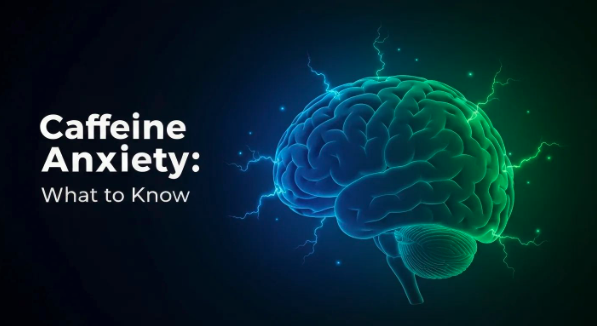Understanding Signs of Love Loss or Depression
Wondering, "Have I fallen out of love or am I depressed?" Discover the signs and insights in this guide.

Signs of Falling Out of Love
Recognizing the signs of falling out of love can be challenging, especially when intertwined with feelings of depression. Understanding these indicators can help individuals assess their emotions and decide on the best course of action.

Lack of Excitement in Spending Time
When individuals find themselves not excited to spend time with their partner, it may signal a decline in romantic feelings. This absence of eagerness can stem from personal insecurities or fears of forming deeper attachments. An essential aspect of a healthy relationship is the joy and enthusiasm that comes from shared experiences. If this excitement is missing, it is crucial to reflect on what might be causing this emotional distance.
Disinterest in Intimacy
A noticeable decline in intimacy can be another concerning sign. This lack of interest, particularly when there are no other explanations for it, might indicate a fading connection. Intimacy is a vital part of maintaining a bond, and decreased interest can be distressing for both partners. Understanding the reasons behind this change can be beneficial for addressing the core issues within the relationship.
Sign of Losing InterestDescriptionLack of ExcitementNo eagerness to spend time togetherDisinterest in IntimacyReduced or absent physical connection
Uncertainty About the Future
Feeling unsure about the future with a partner can also suggest waning feelings. This uncertainty often leads to doubt, creating a barrier for effective communication. Open dialogue about concerns can be essential in bridging this gap and understanding each partner's needs. Addressing these uncertainties proactively can provide clarity and help determine whether the relationship can be repaired or if it's time to move on.
Understanding these signs is pivotal for individuals struggling with feelings surrounding love and affection. For further insight into mental health and relationships, consider exploring topics such as male depression: breaking the silence and stigma or high-functioning depression: when depression is hidden.
Behavior Indicative of Fading Feelings
Recognizing the signs of fading feelings in a relationship can be challenging. Specific behaviors often indicate a shift in emotional connection. This section explores some of these behaviors, emphasizing the distinction between falling out of love and experiencing depression.
Avoiding Time with Partner
Deliberately seeking opportunities to avoid spending time with a partner can be a strong indicator of changing feelings. This may manifest as staying late at work, making excuses, or finding ways to be away from them. Such actions often reflect unmet needs within the relationship rather than mere busyness.
BehaviorPotential MeaningStaying late at workDesire to avoid confrontations or distanceCanceling plansLack of interest in shared activitiesSeeking solitudeTrying to escape emotional connection
Communication Patterns
Communication plays a crucial role in any relationship. When a partner begins to demonstrate silent contempt or frequently shifts blame onto the other, it can significantly disrupt effective communication. This defensive behavior can create a barrier, making it difficult for partners to discuss their feelings openly [2].
Communication StyleIndicationSilent contemptAvoidance of confrontation, resentmentShifting blameLack of accountability, defensivenessWithdrawal from discussionsEmotional detachment
Impact of Defensive Behavior
Defensive behavior can severely damage a relationship. When partners resort to blame-shifting instead of constructive dialogue, it often indicates deeper issues related to love and affection. This reluctance to engage can also lead individuals to feel emotionally dead or empty, drawing them to fantasize about finding happiness outside the relationship.
Continual defensive interaction creates a toxic environment, making it harder for misunderstandings to be resolved. It's essential to recognize these patterns to determine if feelings are genuinely fading or if underlying mental health concerns, such as depression, are influencing behavior.
For more detailed insights into how depression can affect relationships, readers can explore our article on male depression: breaking the silence and stigma or learn about high-functioning depression: when depression is hidden. Understanding these dynamics strengthens awareness and encourages communication, which is vital for addressing the question, "have I fallen out of love or am I depressed?".
Understanding Obsessive Love
Obsessive love can manifest in various forms and is often driven by a combination of psychological factors and societal influences. This section explores the causes and development of obsessive love, its relation to Borderline Personality Disorder, and the impact of social norms.
Causes and Development
Several factors may lead individuals to develop obsessive love towards others. These can include delusional disorders, mental health issues, and childhood trauma. Abnormal attachment patterns formed during early childhood may contribute to feelings of fear regarding abandonment. Such experiences often create a strong desire for emotional closeness, which can manifest as obsessive behavior in relationships.
One common element observed in individuals with obsessive love is the overwhelming need to maintain connection and closeness with their partner. This need sometimes leads to controlling behaviors and emotional dependence, which can negatively affect the quality of the relationship.
Influence of Borderline Personality Disorder
Borderline Personality Disorder (BPD) significantly influences the development of obsessive love. Individuals affected by BPD may intensely fear abandonment, experience emotional dysregulation, and act impulsively in relationships [4]. These traits can lead to a cycle of idealization and devaluation in romantic partnerships, often resulting in obsessive behaviors.
People with BPD may become overly attached to their partners, viewing them as their sole source of emotional support. This can create setbacks in their relationships, as partners might feel overwhelmed or smothered by the intensity of these feelings. Understanding the role of BPD in obsessive love is crucial for recognizing the necessary paths to healthier relationship dynamics.
Impact of Social Norms
Social and cultural norms also play a critical role in shaping one's perception of love and relationships. Norms that reinforce toxic masculinity or similar harmful perspectives often contribute to the belief that love equates to ownership. This notion can lead to abusive behaviors being normalized in relationships.
Exposure to unhealthy relationship styles during childhood can further exacerbate the development of obsessive love tendencies. Children who witness unhealthy dynamics may internalize these behaviors as acceptable or desirable in their own relationships. Addressing these societal influences is vital in fostering healthier attitudes toward love and relationships.
By understanding the complexities underlying obsessive love, individuals can better reflect on their feelings and behaviors in relationships. This awareness can assist in distinguishing whether they are experiencing genuine love or if their emotions may be tied to deeper issues such as mental health challenges or social conditioning. For those questioning their feelings, exploring resources about emotional health, such as male depression: breaking the silence and stigma or am I depressed or lazy?, may prove beneficial.
Effects of Depression on Love
Understanding the impact of depression on romantic relationships is important for identifying feelings of disconnection and loss of love. Various elements of depression can alter emotional experiences, perceptions, and physical intimacy within relationships.
Emotional Experience Alteration
Depression fundamentally changes how individuals experience emotions, including love and affection. Many people suffering from depression find it increasingly difficult to feel joy, excitement, or love, which can hinder their ability to express these emotions towards others. This emotional numbness can lead to significant difficulties in maintaining emotional connections with partners.
Emotional FactorsImpact of DepressionJoyReduced ability to feel happinessLoveDifficulty expressing affectionExcitementLack of enthusiasm towards activities
Perception Shift in Relationships
Depression can distort an individual's perception of their partner and the overall relationship. Symptoms such as low energy, irritability, and a lack of interest in activities directly impact communication and social interactions. These changes can create feelings of neglect and disconnection from loved ones. For instance, an individual may perceive their partner's behavior negatively, leading to strained relationships and misunderstandings.
Perception ChangesEffectsNegative OutlookIncreased conflictFeelings of DisconnectionLack of intimacyDecreased InterestPoor communication
Impact on Physical Intimacy
Depression significantly impacts physical intimacy in relationships, often leading to reduced libido. This decline in sexual desire can affect the overall closeness between partners, making it difficult to maintain the bond that is essential in romantic relationships. Though depression itself may not directly cause someone to fall out of love, it can influence feelings of affection and attachment, leading to a sense of emotional distance [5].
Intimacy FactorsImpact of DepressionLibidoDecreased desire for physical contactEmotional ConnectionReduced feelings of closenessRelationship SatisfactionPossible decline due to lack of intimacy
It is vital for individuals experiencing these symptoms to differentiate between genuine feelings of falling out of love and the effects of depression. Seeking professional help can provide clarity and guidance for addressing these challenges. For more information on understanding emotional disturbances, refer to our articles on male depression: breaking the silence and stigma and high-functioning depression: when depression is hidden.
Differentiating Love and Depression Symptoms
Understanding the difference between feeling disconnected from a partner and experiencing depression is essential for emotional well-being. Various symptoms can indicate whether someone is experiencing typical relationship issues or underlying mental health struggles.
Negative Thought Patterns
Individuals suffering from depression often experience negative thought patterns. They may believe that they are unloved or that their partners would be better off without them [5]. This can lead to cognitive distortions, where the individual perceives their relationship in a distorted manner, focusing on the negatives while ignoring the positives. These patterns can contribute to feelings of hopelessness and sadness, making it challenging to maintain a healthy relationship.
The following table summarizes common negative thought patterns in depression:
Thought PatternDescriptionAll-or-Nothing ThinkingViewing situations in black-and-white terms, with no middle groundOvergeneralizationMaking broad conclusions based on a single incidentCatastrophizingExpecting the worst possible outcome in situations
For further insights on identifying and challenging these thoughts, check out our article on cognitive distortions in depression: identifying and challenging negative thoughts.
Anhedonia and Altered Perception
Anhedonia, the inability to experience pleasure, is one of the hallmark symptoms of depression. It can manifest as a loss of interest in activities that once brought joy, including spending time with loved ones. This alteration in emotional experience may cause an individual to believe they have fallen out of love, while in reality, it's a symptom of depression.
Individuals may feel emotionally dead or empty, believing their relationships hold them back from experiencing intensity and passion. This can lead to fantasies of finding happiness elsewhere [7].
Seeking Professional Help
Seeking professional help is crucial in differentiating whether one has fallen out of love or is experiencing symptoms of depression. A mental health professional can provide a proper diagnosis and determine if therapy or medication is necessary to manage the condition. Professional support can greatly improve relationship dynamics and emotional health [6].
It's important for individuals to recognize that the symptoms of depression can mimic the feelings of love loss. Consulting with a therapist can be a beneficial step toward understanding one's emotions and enhancing personal relationships. For more targeted information, explore our resources on male depression: breaking the silence and stigma and high-functioning depression: when depression is hidden.
Relationship Quality and Mental Health
The quality of relationships with partners and friends can significantly impact mental well-being. Understanding this connection can help individuals recognize if they may be experiencing issues related to love loss or depression, often leading to the question, "have I fallen out of love or am I depressed?"
Link Between Social Relationships and Mortality
Research indicates a clear link between social relationships and mortality rates. Individuals with lower levels of social engagement are more likely to face higher mortality risks compared to those with strong social connections. Studies across industrialized nations have shown that participation in social relationships contributes positively to longevity.
Level of Social InvolvementMortality RiskLowIncreasedMediumNeutralHighDecreased
Long-Term Partners and Health
The presence of long-term partners can significantly influence physical health outcomes. Individuals who have a partner during major surgeries, such as heart surgery, are three times more likely to survive the first three months post-surgery compared to single patients. This is in part due to the emotional support and confidence boost that comes from having a significant other around.
Relationship StatusSurvival Rate Post-SurgeryWith Partner75%Single25%
Benefits of Healthy Relationships
Healthy relationships provide numerous benefits that positively affect mental health. Research shows that individuals in committed relationships tend to produce lower levels of cortisol, a hormone linked to stress. This indicates that those in relationships are generally less reactive to psychological stressors. The emotional and social support provided by partners serves as a buffer against life’s stresses [9].
Additionally, being in a supportive relationship often promotes a healthier lifestyle. Partners typically encourage each other to engage in positive habits, such as maintaining a balanced diet, exercising regularly, and avoiding harmful substances.
Benefits of Healthy RelationshipsDescriptionLower Cortisol LevelsReduced stress responseLifestyle EncouragementFosters healthy habits
The connection between relationship quality and mental health is crucial. Exploring and understanding these dynamics can aid individuals in recognizing their own emotional states and coping mechanisms, ultimately helping them navigate questions of love and feelings of depression. For those experiencing challenges within their relationships, seeking guidance through methods such as high-functioning depression or male depression might be beneficial.
References
[2]:
[3]:
[4]:
[5]:
[6]:
[7]:
[8]:
[9]:
More Resources
A team ready to start your journey.
Get in touch — today.
We are a safe space – a haven for exceptional individuals to receive discreet, personalized, in-person treatment and care.
.avif)

.webp)








